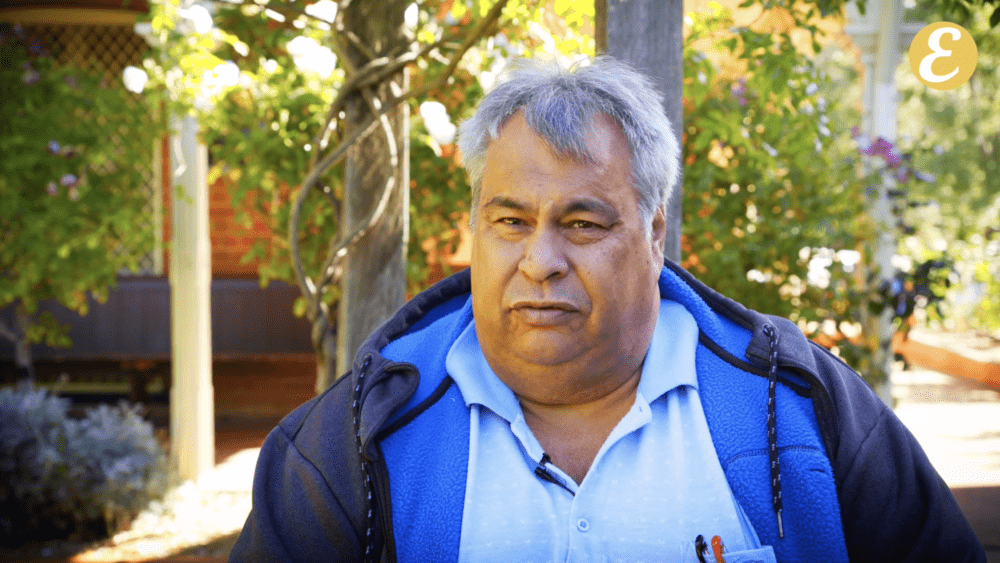In a long prayed-for initiative, the Aboriginal Evangelical Fellowship of Australia (AEF) plans to roll out a Bible training program for Indigenous Christians in partnership with the Bush Church Aid Society (BCA) and Perth Bible College.
The AEF Bible Training Ministry aims to fill a gap in the education and training of Aboriginal Christians to minister to their own people and in the wider church.
“AEF’s history has always been to basically encourage Indigenous people to get involved in ministry and in ministry to their own people,” says BCA’s Indigenous ministry officer Neville Naden.
“I was trying to kick some goals in terms of basic theological education, but AEF identified a gap in the whole educational process and they’re wanting to try and have a pathway by which people can transition into higher theological education.”
BCA has appointed Perth-based Pastor Dennis Taylor, assisted by his wife Valda, to head up the church-based program. This will involve sourcing training material and then devising a plan for rolling out a Bible-based training program across the country. Naden and AEF CEO Tony Riches will assist Taylor in the implementation phase.
As well as support through its vast prayer network, BCA is investing substantially in this ministry as a way to speed up the training of Aboriginal Christians.
Perth Bible College is supporting the venture by donating office space, internet access, and the cost of the power supply.
“The end goal is that more people will be identified, trained, raised up and then sent out to the ministry themselves.” – Neville Naden
“The training will involve looking at doctrine, some church history, we’ll be looking at the various genres of Scripture – epistles, gospel, all that sort of stuff – with a hope that it might give more people a taste of what theological education is all about,” Naden says.
“Basically BCA’s vision is that more people will be trained up and raised up to minister among their own people and within the general church context.
“The church in the past used the phrase ‘we want to missionise Australia.’ And so they’ve always seen Aboriginal people as being a mission field. We want to turn that on its head and we want to see [Aboriginal] people becoming the mission force. So the end goal is that more people will be identified, trained, raised up and then sent out to the ministry themselves.”
“Assessment can be done orally because some of our people struggle with the English language, but the ones that are able to handle that will do a written test.” – Dennis Taylor
Dennis Taylor told Eternity that a pilot program is already running in a handful of churches with the aim of launching it fully in the new financial year from July 1.
“The beauty of this course is it reaches people where they’re at in their local churches as well as building up Indigenous people in their walk with the Lord and strengthening them and giving them the tools to do that,” he said.
At the moment, the focus is on two short discipleship courses in which attendance and participation will be key components of a three-part assessment process.
“Assessment can be done orally because some of our people struggle with the English language, but the ones that are able to handle that will do a written test,” he explained.
While the program will be initially rolled out in local Indigenous churches, “in the long term, we hope to have a residential college where people can come and study, so we’re setting up a curriculum, and gathering ideas for that.”
Meantime, he will start identifying various pastors around the country who can be trained to train others to deliver the courses.
“For the leaders and pastors in those churches and communities we look to them to identify someone who can train the trainer so I’ll be able to present the discipleship course 1 and 2 as part of building up people in the local church, so I think that might be my life from now on,” he said.
“The key is that we set up representatives in those places because physically I won’t be able to get to everyone, they will hand out our resources and inform them of our courses and they can inform the people and I can come once a week or two-weekly to go through the material with them.”
“I think that the church would do well to be able to get alongside them and support them.” – Neville Naden
Naden says AEF was set up in the early 1970s – at a time Aboriginal people weren’t viewed as having the ability to do ministry themselves – with the aim of enabling Aboriginal people to do ministry themselves,
“Now they’re actually doing it. And so I want to encourage that. I want to see more Aboriginal people come on board and I think that the church would do well to be able to get alongside them and support them. AEF has been a conservative Christian organisation, so it ticks a lot of boxes for a lot of our Anglican churches around the country.”
Tony Riches, CEO of AEF, said this kind of much-needed flexible support for Aboriginal Christians was a “great blessing”. He said the project included mentoring Indigenous students doing accredited courses at Perth Bible College, and streamlining training for Aboriginal people. He is moving from Melbourne to Perth to become more involved in this work.
You can support the AEF Bible Training Ministry either by supporting BCA or AEF.
Email This Story
Why not send this to a friend?


